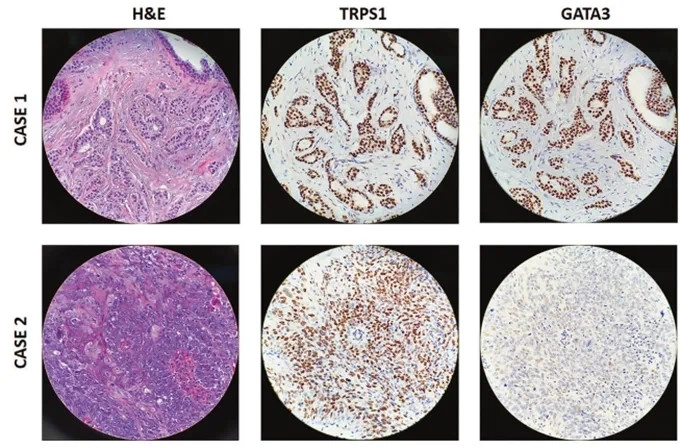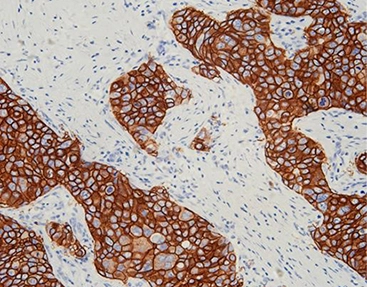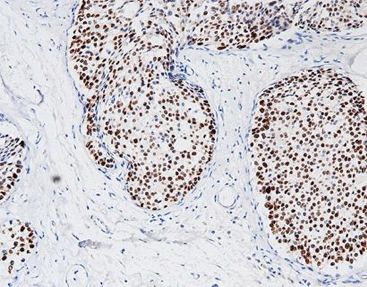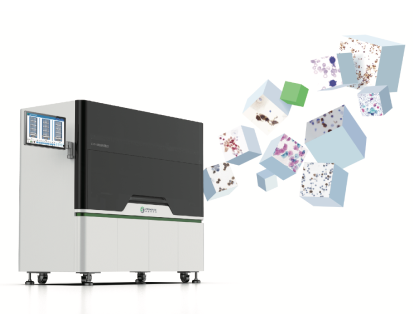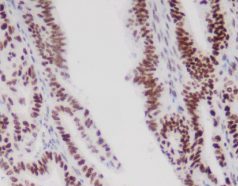How Temperature Affects Primary Antibody Stability in Western Blotting
2025-03-25
By admin
Primary antibodies are vital in Western blotting. They act as the essential bridge between your sample and dependable outcomes. Yet, their effectiveness relies greatly on storage conditions—especially temperature. Primary antibody stability can determine the success or failure of your work. Temperature is the key element here. In this blog, we’ll explore how primary antibody storage temperature influences stability.
Introduction to Primary Antibody Stability
Primary antibody stability describes an antibody’s capacity to keep its shape and binding precision over time. In Western blotting, this steadiness guarantees accurate identification of target proteins. It delivers consistent results too. Instability often stems from poor storage habits. This can cause experiments to flop. Temperature is the foundation of preservation. So, labs must focus on proper primary antibody storage temperature rules.
Why Primary Antibody Stability Matters in Western Blotting
The Role of Primary Antibodies in Western Blotting
Primary antibodies are the powerhouse of Western blotting. They latch onto specific proteins on a membrane to allow clear viewing. Their stability shapes:
- Steady signal strength: Firm antibodies create trustworthy, measurable bands. These are crucial for later analysis.
- Low background clutter: Undamaged antibodies cut down on stray binding. This leads to neat, clear blots.
Without stability, even the best antibodies—like those in Celnovte’s catalog—lose their power. This weakens your research efforts.
Consequences of Poor Antibody Stability
When primary antibody stability weakens, the effects are serious:
- Wrong positives or negatives: Breakdown can mess up protein recognition. This distorts findings and leads to confusion.
- Higher experiment expenses: Unsteady antibodies demand repeat tests. This drains time, supplies, and funds.
For scientists, stable antibodies shield against these pricey problems. They ensure every blot matters.
How Temperature Impacts Primary Antibody Stability
Optimal Storage Temperatures for Primary Antibodies
Primary antibody storage temperature varies with time:
- Brief storage (1–2 weeks): Keep antibodies at 4°C in a lab fridge. This maintains their activity without freezing.
- Extended storage: Place them at -20°C with 50% glycerol to stop ice crystals. Or, use -80°C with BSA for peak stability over months or years.
Picking the right temperature protects binding strength. It also lengthens usability. This is especially true for delicate monoclonal antibodies like Celnovte’s TRPS1 antibody.
Effects of Temperature Deviations
Mishandling temperature can ruin primary antibody stability:
- Room temperature exposure:
- Under 6 hours: Most antibodies handle short exposure well. The effect is slight.
- Over 24 hours: Long heat causes clumping or permanent damage. This makes antibodies useless.
- Repeated freeze-thaw rounds: Studies show binding strength can drop by up to 40% after just 5 rounds. Frequent freezing harms protein structure.
Here’s a clear stability comparison over time:
|
Temperature |
6 Months |
12 Months |
24 Months |
|
4°C |
Steady |
Signal fades |
Major loss |
|
-20°C (w/ glycerol) |
Steady |
Steady |
Slight drop |
|
-80°C |
Steady |
Steady |
Steady |
This chart shows why proper primary antibody storage temperature is vital for lasting reliability in Western blotting.
Best Practices for Primary Antibody Storage
Step-by-Step Storage Guidelines
To boost primary antibody stability, try these tested tips:
- Divide into tiny amounts: Split antibodies into one-use portions. This cuts down on freeze-thaw rounds.
- Add protectors: Use 50% glycerol for -20°C storage. Or, add 0.1% sodium azide for -80°C to guard against breakdown.
- Tag carefully: Note the storage date, concentration, and batch number. This helps track use and lifespan.
These steps ensure antibodies, like Celnovte’s c-erb-2 antibody, stay trustworthy for your Western blotting tasks.
Common Storage Mistakes to Avoid
Watch out for these common slip-ups:
- Freezing watered-down antibodies at -20°C: Icy diluted mixes shift pH. This harms proteins over time.
- Leaving antibodies at room heat: Even a few hours on the counter can hurt stability.
Dodging these errors keeps antibody quality intact. It spares you from annoying retries.
Enhancing Western Blot Results with Stable Antibodies
Troubleshooting Temperature-Related Issues
Temperature slip-ups often show up in Western blot outcomes:
- Faint or missing signal: Check storage records for temperature spikes. These might have harmed the antibody.
- Lots of background mess: Broken antibodies can stick randomly. This clouds your blot.
Keeping the best primary antibody storage temperature avoids these troubles. It ensures sharp, solid results.
Case Study: Impact of Proper Storage
Look at this real-life example:
- Lab A (-80°C storage): They used Celnovte’s Progesterone Receptor antibody. Their bands stayed steady for over 2 years.
- Lab B (4°C only): They kept antibodies at 4°C. Their signal faded in 6 months. They had to buy more.
This big difference proves the value of proper primary antibody storage temperature habits.
Celnovte: Your Trusted Partner for High-Performance Primary Antibodies
About Celnovte as a Reliable Supplier
Based in Jiangsu, China, Celnovte Bio-tech Co., Ltd. brings over 10 years of skill in antibody creation. They work from a 10,000 m² ISO 9001-certified site. Celnovte makes pure antibodies trusted by researchers everywhere. Their focus on stability and quality sets them apart for Western blotting needs. Check out Celnovte’s homepage to see their range.
Why Researchers Choose Celnovte
Celnovte wins confidence with:
- Pure antibodies: Over 95% accuracy, checked thoroughly by ELISA and Western blot.
- Stability-first options: Choices like dried antibodies for shipping. Plus, pre-split solutions with protectors.
- Worldwide standards: ISO-approved methods guarantee steady quality.
Featured Product
The Anti-beta-Actin Mouse Monoclonal Antibody shines: steady for 24 months at -80°C with 0.1% sodium azide. It’s a top pick for Western blotting controls.
FAQs About Primary Antibody Storage and Stability
Q1: How long can I store primary antibodies at 4°C?
A1: Most primary antibodies stay steady at 4°C for 1–2 weeks. After that, slow protein decay can reduce signal power.
Q2: Can repeated freeze-thaw cycles destroy antibodies?
A2: Yes, 3–5 freeze-thaw rounds can greatly cut primary antibody stability. Binding strength may fall by up to 40%.
Q3: Do lyophilized antibodies require cold storage?
A3: No, dried antibodies hold up at room temperature until mixed with liquid. After that, follow usual primary antibody storage temperature rules.
Q4: What temperature is safe for shipping antibodies?
A4: Liquid antibodies travel best at 2–8°C. Dried ones handle normal conditions well, making shipping easier.
Optimize Your Western Blotting Today!
Take Action with Celnovte
Steady antibodies are the base of great Western blotting. Pair proper primary antibody storage temperature habits with Celnovte’s strong products—like the Progesterone Receptor antibody. You’ll get reliable, journal-ready results. Visit Celnovte today to explore their offerings. Lift your research to new heights!




